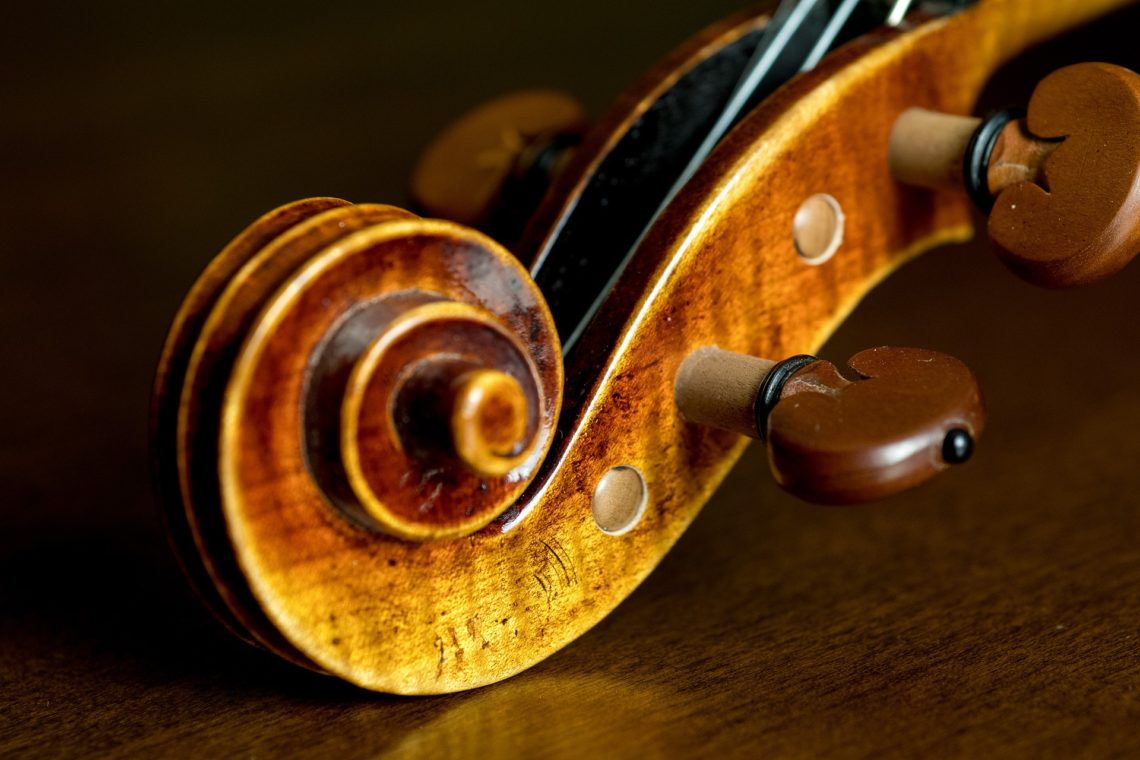I have never been able to fully grasp the idea behind historically informed performance. For a start, why would anyone want to play on period instruments? Instruments are hard enough to master as it is, so if a player makes his/her life more difficult by playing on a version of an instrument that went out of fashion FOR A REASON, it does not necessarily say anything positive about their state of mind. And then there’s the whole practice thing. I don’t know much about how pieces were rehearsed 300 years ago, but I know that they weren’t rehearsed much. The same lack of knowledge becomes apparent when it comes to training. I cannot even begin to imagine how violinists were trained 300 years ago, but I know for sure that none of them were able to play the Paganini caprices. In view of all this evidence, I cannot but conclude that an orchestra of Paganini-trained musicians performing a well-rehearsed piece will not sound anything like it would have sounded originally and that historically informed performance is bogus and not worth listening to. However, I can never say ‘no’ to cheap tickets and it thus came to pass that I recently found myself at Southbank Centre with the Orchestra of the Age of Enlightenment.
The only thing I can say in my defence is that the ticket was only £5 and it was Beethoven, historically informed Beethoven no less (Symphony No.4 and the Violin Concerto) with Marin Alsop and Nicola Benedetti, so how could I not have gone? And if I was going to go, I was going to make the most of it and therefore needed to go to the pre-concert talk where Nicola (called Nikki) advised people never to look at the concert schedule when things got tights as that only freaks one out and Marin Alsop said that if you cannot enjoy rehearsals, you’ll never enjoy the concert, which explained a lot about a few recent unpleasant performance experiences I’d had. Then she comforted me by saying that perfection is overrated. The two of them were certainly among the nicest and most charismatic people I have ever seen and an unbeatable duo. Meanwhile, the chief executive looked very dapper in what I judged to be the bluest suit I had ever seen.
Feeling fortified intellectually, I the made my way to my absolutely magnificent seat and was treated to another novelty: a free programme. This made me so grateful that I read the whole booklet cover to cover. I even read the list of players in the hope that I would come across someone I knew (which I didn’t). It was beginning to dawn on me that I was in early stages of addition to the whole experience and I had not even heard them play one note. And then they came, with their oddly shaped, en vogue in times gone by instruments: 51 players the mental state of which I felt doubtful about because they play period instruments, 30 of which were women, including an all-female bass section. This made me think of an anecdote Marin Alsop recounted earlier in which back in good old Baltimore a little boy said he wanted to be a conductor and a girl told him that only girls could do that. Apparently, everything was different that day.
Tuning was a lengthy and seemingly painful affair. However, I had little time to think about the musicians’ tuning plight because I was distracted by the goose bumps all over my body. I don’t know if it was the 430 pitch or the gut strings or my central nervous system having a meltdown, but the goose bumps came to stay. Apparently, that is what they had meant in the pre-concert talk when they told us that period instruments are alarming at first. The next hour and is a bit of a blur. I do remember that I listened out for the bit that we’d been informed sounded like ‘Chitty, chitty, bang, bang’, but unfortunately, I don’t know what ‘Chitty, chitty, bang’ bang sounds like’, so I didn’t hear it. I also remember that some people got carried away and clapped after the first movement and that the mob did not kill them. The clapping became more intense after the second movement. I bravely held out until the third movement before joining in. At the end, I don’t remember ever clapping so very loudly and passionately.
When I left the concert hall, someone gave me a flyer. It instructed me listen to certain pieces and read certain stuff in order to broaden (or maybe deepen, or maybe both) my knowledge. I am very glad the instructions on the flyer were benign, because by then I was so hooked that I would have done anything (and I trust you’ll never use that knowledge against me). What a strange evening this had been. Not only had I learned that period instruments make strange sounds that are fun, but that all of the players seemed to have the time of their life, especially the ladies of the all-female bass section. Could it be that I had been wrong about historically informed performance? If the result was so amazing, maybe it was worth learning to play instruments fashioned in times gone by. Maybe people were not crazy after all, but they were just plainly seeing things which until that evening I had been unable to see.



